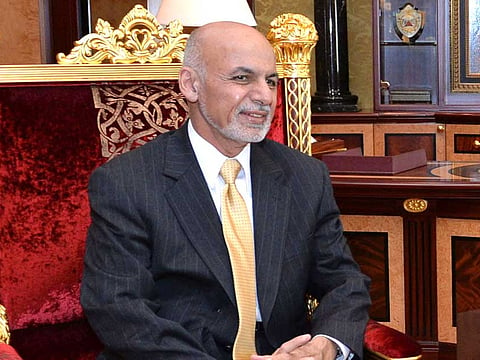No magic solutions in Afghanistan
Security remains a great challenge in the land-locked country, with many of the rural areas contested and attacks mounting in cities

There is so much that is wrong, corrupt, troubling, and dangerous in Afghanistan that it seems strange to return from a visit with positive impressions. Yet, so it was, more than in any time I can recall in the dozen years I have worked in and visited Afghanistan. After several years in which the administration of former United States president Barack Obama barely put enough resources into Afghanistan to avoid losing, and when the Trump administration has neither altered the strategy nor understood why it still hasn’t produced victory, it is useful to look deeper into what is happening in some important areas that get little to no news coverage.
The three things that have so impressed me in my visit last month are in the reform of military leadership, civil service improvements, and anti-corruption efforts. None of the changes are complete, to be sure. All could be lost or reversed. The pushback against them from entrenched political elites is intense. The forthcoming elections may undercut them. But the important difference from the past is that the reforms now starting are Afghan initiatives. That makes it extremely important that American and Nato support for the new efforts be clear and unwavering so that they will be locked in place.
Military leadership, especially at the senior levels, has been a grave weakness of the Afghan military. Generals appointed for political connections have performed poorly. The fall of the Afghan city of Kunduz in 2015 was a demonstration of government and military incompetence as much as it was a Taliban success. After my visit last year, I had told senior officials of the Obama administration that without changes in the most senior Afghan National Army leadership, most of the other military reforms the US was engaged in would be undermined. Now, slowly and painfully there is change.
A new defence minister has replaced one who was woefully inept. Lt General Mohammad Sharif Yaftali, for several years spoken of as one of the two best corps commanders, has become the army chief-of-staff. Most of the other corps commanders have been replaced by younger generals, promoted from the commands of brigades — and, in one case, the elite commandos — on merit rather than politics or family ties. And the replacement of at least some incompetent subordinate commanders has begun. In my experience, this is the first time that battle-tested officers are breaking through the political ceiling of senior ranks. It will take time, but President Ashraf Gani intends this to be a generational change in Afghan military leadership. And as these new leaders take command, US advisers and air support are essential. Current US forces number just less than 9,000. The advisory teams they can field do not cover every corps, and of the combat brigades only a few receive periodic advice as floating teams of advisers move to reinforce the most critical needs.
The defence ministry reforms are only a beginning. The equally critical but far more corrupt Interior Ministry has barely been touched. To offset the slowness in reforming the Interior Ministry, most of the border police and the so-called civil order police battalions (Ancop) will be transferred to army control.
Perhaps the most important challenge to Afghan politics is the newly reformed Independent Administration Reform and Civil Service Commission (IARCSC). Despite several previous efforts, the Afghan civil service has been mired in political patronage. Connections, not qualifications, are the job requirements at every level — from tea boy to minister. The new commission has immense power to change this. It can change the structure of ministries to smooth bureaucratic overlaps, determine hiring procedures, and reverse appointments deemed not to have followed proper procedures.
The revitalised commission is led by Nader Naderi, a young but widely respected civil society and human rights leader. Commission members include young leaders from several civil society groups conspicuously outside the normal political ranks. Their first success provides an interesting case study in doing things differently. Required to select 500 employees to work on a new electronic identity card, they took applications from 25,000 candidates across the country; 14,000 were then qualified to take an exam scored by computer with the names of the candidates removed.
The commission confronts a gigantic task. It cannot tackle all ministries and all the personnel and pay systems at once. Success will take years. What Naderi and his colleagues are undertaking at President Gani’s direction and with the support of national Chief Executive Abdullah Abdullah is nothing less than challenging the basis of Afghanistan’s patronage politics. One should expect that the attacks on the commission will be ferocious, and quite possibly physical. This is the challenge of real reform in Afghanistan.
Meanwhile, security remains a great challenge with many of the rural areas contested and attacks mounting in cities. The reform of the security services needed to reverse this state of affairs will take time. There are no magic solutions. One should not expect to see major change on the battlefield for at least a year or two. The reforms beginning now should have begun years ago; they are necessary but not sufficient to alter a political culture that threatens the country. But they are a beginning and they manifest a political will not previously evident. They are actions, not just plans and promises. And for those reasons, they should be a source for hope and a reason for continued support in America’s longest war.
— Washington Post
Ronald E. Neumann was US ambassador to Algeria, Bahrain, and Afghanistan. He is president of the American Academy of Diplomacy.



